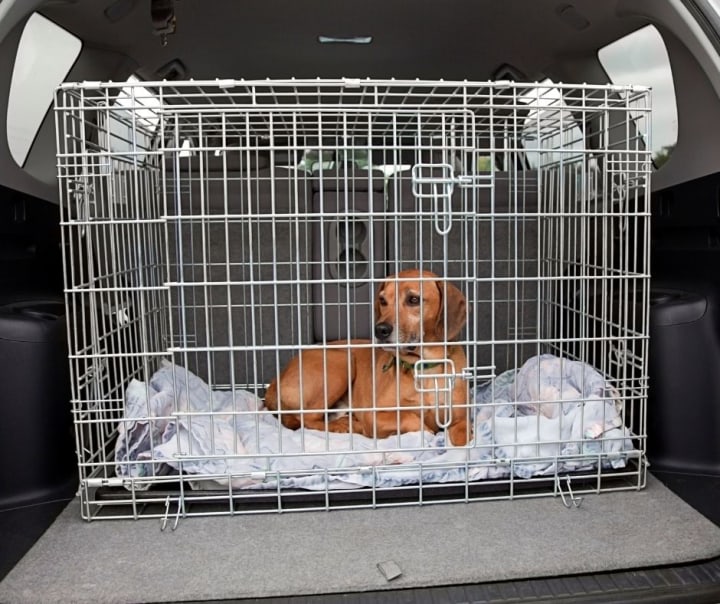Dealing With a Paralyzed Dog
It is NOT The End of The World

The simple truth is that pets can become paralyzed for many reasons. They may break their back if they are hit by a car. Many breeds are prone to disk ruptures and spinal tumors.
While some of these conditions can be fixed, there are other times when they can't. That doesn't mean that your pet is going to have a bad life. Your pet can have a happy and healthy life, just by making a few changes to your home.
Here are some things that you can do to help your paralyzed pet have a good life.
First, if your pet stops walking, it is very important to seek medical attention.
If your pet isn't able to walk, surgery may be the best option. However, it is usually an emergency and, the sooner that it is done, the better off your pet will be. If you are able to afford surgery, your pet will have a good chance at recovery.
However, even with surgery, there is a good chance that you may be dealing with a paralyzed pet for several weeks. There may also be a chance that he or she may never recover completely!
It is very important for your pet's health that he or she is comfortable and relaxed in the environment.
Whether your pet has gone through surgery or not, cage confinement is going to be recommended. Your pet will need to spend a few weeks or months in his or her crate (except whenever you are able to closely watch your pet).

Some dogs do better recovering in a quiet dark room, while others need to have their crate in the middle of the living room, so that he or she is still spending time with the entire family. You may need to leave the radio on when you are gone. In fact, you may need to try a few different things until you find out what works best for your pet.
You need to remember that paralyzed pets often have no control over their eliminations.
Unfortunately, these pets will often urinate and defecate all over themselves. You will need to give your pet plenty of baths to keep his or her skin healthy. You are going to want to stock up on baby wipes, so you don't always have to bathe your pet.
Puppy pads are commonly used because they are easier to change than the full bedding. In fact, some people prefer to use diapers to keep their pets as clean as possible.
Since your pet is unable to move very well, it is necessary to have extra bedding.
Otherwise, your pet may develop bed sores. To give your pet even more padding, you could put plastic bags over pillows or other cushions. This allows you to reuse the pillows or cushions, without worrying about anything getting wet and ruined.
Another way to relieve bedsores is to rotate your pet.
Some pets would lie on one side all day long. Instead, move your pet from side to side. If you can, you may want to sit your pet up on his or her chest. You can use pillows to help prop your pet into position. It is recommended to move your pet every four to six hours if you are able to.
If possible, take your paralyzed pet outside when you can.

Most animals enjoy spending time outside. Even if you are just able to carry your pet out and lay him in the grass, it will make a difference.
Some pets can walk with the assistance of a sling. You can take your dog out and support his or her back end so that your pet can move around a little bit like normal.
You may want to try physical therapy.
Physical therapy can help improve your pet's condition, so you should try it if you are able to. Often, hydrotherapy is the best. It allows your pet to concentrate on moving his or her legs, without having to hold up their own weight.
Keep an eye out for depression.
Often, paralyzed dogs and cats can become depressed. For this reason, you need to spend time with him or her.
Having a pet that is paralyzed isn't the end of the world. With some extra care and attention, you can continue sharing your life with your pet. Make sure that you seek medical attention, to ensure that your pet has the best chance at recovery.
About the Creator
Shelley Wenger
Small town country girl in southern Pennsylvania. Raising two boys on a small farm filled with horses, goats, chickens, rabbits, ducks, dogs, and a cat. Certified veterinary technician and writer at Virtually Shelley.






Comments
There are no comments for this story
Be the first to respond and start the conversation.